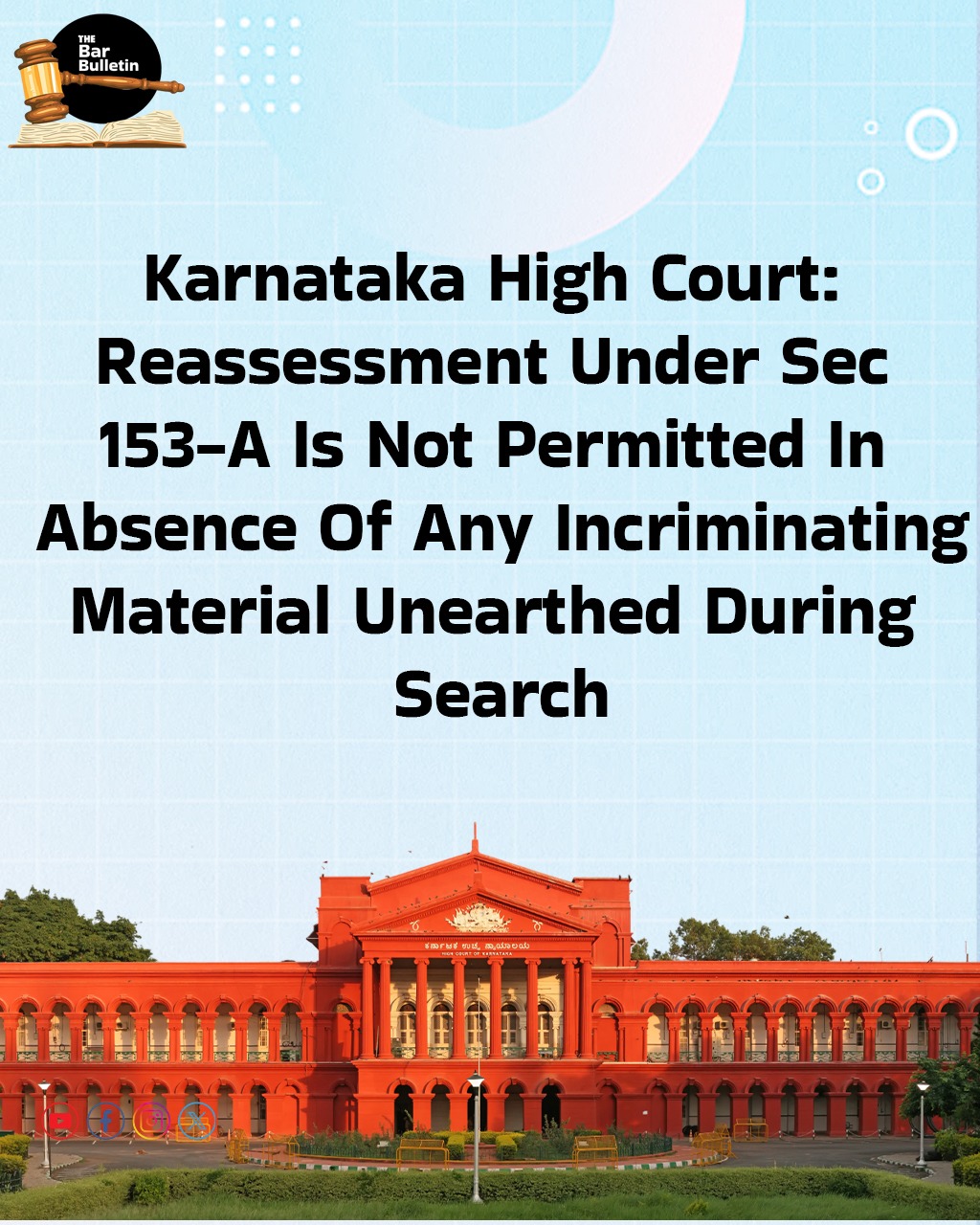The Karnataka High Court (Bengaluru Bench) recently ruled that the reassessment under Section 153-A of the Income Tax Act cannot be sustained, based on the premise that the ITAT, being the final fact-finding quasi-judicial authority, has rendered a conclusion that there was no allegation of concealment of any documents maintained in the course of business by the appellant-taxpayer (company engaged in developing & providing renewable energy project services).
Reference was made to the decision in the case of CIT v. Abhisar Buildwell (P) Ltd. – [2024] 2 SCC 433, where the Apex Court had held that no reassessment under Section 153A or 153C could be done in the absence of any incriminating material found in a search under Section 132 or by requisition under Section 132A of the Income Tax Act.
The Division Bench comprising the Chief Justice Vibhu Bakhru and Justice C.M. Joshi observed that none of the materials found during the search, which were essentially board resolutions, a note prepared by advocates, a valuation report of the fixed assets, documents including deeds of retirement, copies of indenture for reconstitution of the firm, and retirement-cum-release of the partnership firm, could be construed as incriminating.
Briefly, the assessment made was premised on a search conducted in the office premises of the appellant under Section 132, which culminated in a notice under Section 153A, and the total income was determined at Rs. 189.11 crores. The said determination by AO was based on an addition of a sum of Rs. 191.95 crores made on account of capital gains, which was calculated upon conversion of a partnership firm into the appellant company, entailing the transfer of the entire assets & liabilities from the partnership firm to the company. Whereas the appellant claimed that such conversion did not amount to ‘transfer’ under Section 2(47), the AO opined that the conditions as specified under Section 47(xiii) were not fully satisfied to exclude the transfer of assets for availing the benefit of exemption from capital gains.
When the matter reached the ITAT, it was found that the appellant had complied with the conditions as stipulated under Section 47(xiii) (a) and (c) of the Act, and that no incriminating material was found during the search proceedings. Hence, the ITAT held that no reassessment was permitted under Section 153A of the Income Tax Act. Challenging the same, the Revenue Department approached the High Court, but the appeal was dismissed in favour of the appellant-taxpayer.
Case Relied On:
CIT v. Abhisar Buildwell (P) Ltd. – [2024] 2 SCC 433
Appearances:
Advocate Y.V. Raviraj, for the Appellant/ Revenue
NA, for the Respondent/ Taxpayer



